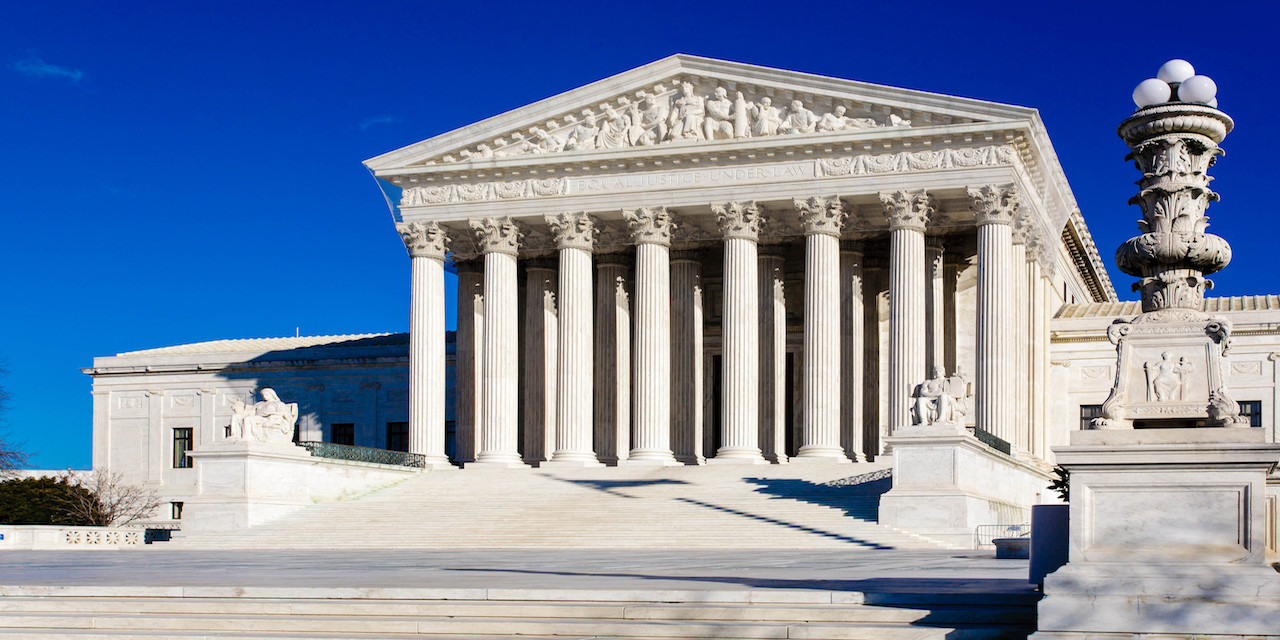WASHINGTON (Legal Newsline) - After the U.S. Supreme Court decided not to opine on whether it was fair that no money from an $8.5 million class action settlement actually went to class members, a critic of such agreements noted that lawyers will continue to succumb to the "perverse incentive" to line their own pockets this way.
In an unsigned opinion delivered last week, the court decided to send the appeal, Frank v. Gaos, back to lower courts to decide the issue of whether the plaintiffs had standing to sue. In doing so, the justices punted on the cy pres issue that generated the most interest from observers.
These types of settlements are abuse-prone as they are crafted largely by plaintiff lawyers, who then take large fees and often direct money to their alma maters, said James Copland, a senior fellow at the Manhattan Institute.

And the defendants also benefit because they will settle for a relatively tiny amount of money and often have their names linked to charities, Copland said.
"These are for and by the lawyers, and create a perverse incentive," he added.
Justice Clarence Thomas, in a dissenting opinion, argued that they did have standing, and that the settlement agreement in the underlying case involving Google should should be reversed as it was unfair and flawed.
The case turned on whether a cy pres-only settlement was "fair, reasonable, and adequate." Under cy pres, or as close as possible, settlement, third parties receive the bulk of the money when a class is so large that it would cost more to deliver any money to a member than any would receive.
For instance, in the Google case, class members would have received about $.04 each.
But these type of settlements have provoked criticism from tort reform groups and other organizations that argue they are designed to benefit trial lawyers and their chosen charities - and indeed the defendants.
The Supreme Court was asked by disgruntled members of a class to reverse the settlement, thereby dealing a serious blow to cy pres. The high court declined to decide that fundamental question, and remanded the issue back to the lower courts.
The cause was taken up by Ted Frank, founder of the Center for Class Action Fairness, and his colleague Melissa Holyoak.
An $8.5 million settlement between Google and three named lead plaintiffs who represented a class of an estimated tens of millions, Google was accused of violating the Stored Communications Act because it stores information of search engine users.
More than $5 million went to charities, including the AARP, and more than $3 million went to cover attorney costs. The three lead plaintiffs received $5,000 each.
The cy pres money is supposed to go to entities working in areas linked to the underlying complaint. Five members of the millions in the class objected to the settlement.
"Nothing went to the tens of millions of Google search engine users whose alleged victimhood formed the basis of the claim," complained Copland, who recently authored a critical report on cy pres.
Copland, the institute's director of legal policy, said one issue with cy pres is that it is not covered by statutory authority, but the rules of state and federal courts.
Copland said the number of cy pres agreements has risen in recent years, while citing a change by the rules committee of the Supreme Court dating back to the 1960s as the genesis for them. That rule essentially introduced opt-out class actions.
In the unsigned Supreme Court opinion, the justices wrote that they grant review over whether they satisfy the requirement that class settlements be “fair, reasonable, and adequate.”
But they wrote, "Because there remain substantial questions about whether any of the named plaintiffs has standing to sue in light of our decision in Spokeo, Inc. v. Robins, we vacate the judgment of the Ninth Circuit and remand for further proceedings."
They added, "Resolution of the standing question should take place in the District Court or the Ninth Circuit in the first instance. We therefore vacate and remand for further proceedings. Nothing in our opinion should be interpreted as expressing a view on any particular resolution of the standing question."
Justice Clarence Thomas, in his dissent, argued the settlement should be reversed on the basis that the cy pres arrangement was unfair as it did not obtain any relief for the class.
Thomas argued that this particular settlement failed the Supreme Court rules on cy pres-only arrangements because "counsel and the named plaintiffs were willing to settle the class claims without obtaining any relief for the class — while securing significant benefits for themselves."
This, he added, "strongly suggests that the interests of the class were not adequately represented."
"In short, because the class members here received no settlement fund, no meaningful injunctive relief, and no other benefit whatsoever in exchange for the settlement of their claims, I would hold that the class action should not have been certified, and the settlement should not have been approved."
